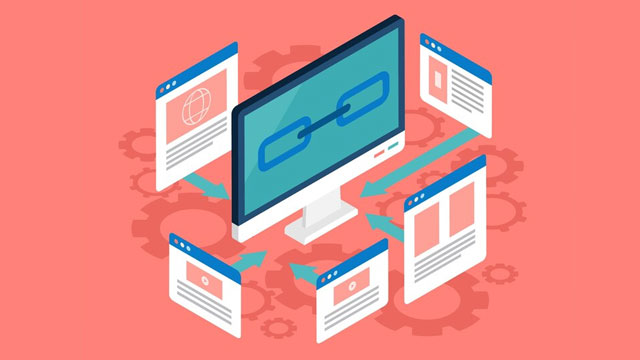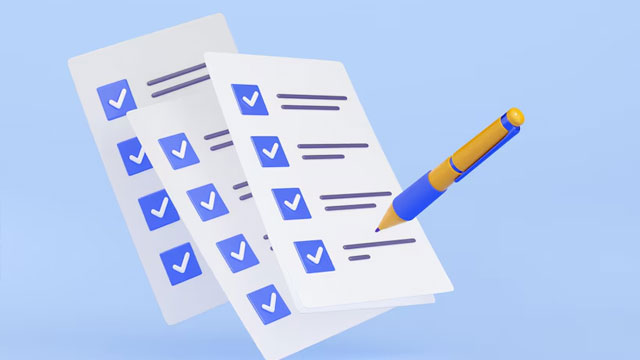Friends, today we are going to talk about the different types of backlinks that you can generate for your blog or website and get traffic through them. As you know backlink generation is a very important task assigned to any SEO executive in any agency. And often the fresher find it very difficult to identify where they should share links to get a backlink for their client.
Here is a list of backlinks that will help you identify where to share your links:-
A. Content-Driven Backlink Building:-
- Guest Blogging – Write high-quality guest blogs on niche-relevant websites with backlinks.
- Skyscraper Technique – Improve and expand upon popular existing content and reach out for links.
- Original Research & Data Studies – Publish unique statistics, surveys, or industry insights to attract backlinks.
- Infographics & Visual Assets – Create compelling infographics, charts, or interactive visuals that websites can embed.
- Ultimate Guides & Resource Pages – Comprehensive and in-depth content pieces that become go-to references.
- Listicles & Roundups – Create curated lists of tools, resources, or industry leaders that people naturally link to.
B. Outreach & Relationship-Based Backlink Building:-
- Broken Link Building – Find broken links on other websites and suggest your content as a replacement.
- HARO (Help A Reporter Out) – Respond to journalist queries with expert insights to get featured and linked.
- Ego Baiting – Feature industry experts in your content and notify them for potential backlinks.
- Podcast Outreach – Appear on podcasts and earn backlinks from show notes.
- Interview Influencers & Experts – Publish interviews that encourage sharing and linking.
- Networking & Community Participation – Engage in niche communities, forums, and Slack groups to earn organic backlinks.
C. Digital PR & Brand Mentions:-
- Press Releases & News Features – Announce updates, partnerships, or unique offerings for media coverage.
- Unlinked Brand Mentions – Find mentions of your brand and request links.
- Expert Roundups & Collaboration Posts – Collaborate with industry leaders for shared exposure and links.
- Competitor Backlink Analysis – Identify and replicate high-quality backlinks your competitors have.
D. Strategic Partnerships & Local SEO Links:-
- Local Business Directories & Citations – Get listed in high-authority directories (Google My Business, Yelp, etc.).
- Sponsorships & Donations – Partner with local events, charities, or organizations for backlinks.
- University & EDU Links – Offer scholarships, resources, or expert insights to get links from .edu domains.
- Testimonials & Case Studies – Provide testimonials to SaaS or service companies in exchange for backlinks.
E. User-Generated & Community Backlink Building:-
- Reddit & Quora Contributions – Provide valuable answers with links where relevant.
- Medium & LinkedIn Articles – Syndicate content on Medium, LinkedIn, and other high-authority platforms.
- Forum & Niche Community Participation – Engage in relevant discussions (without spamming).
- Social Bookmarking Sites – Share content on sites like Flipboard, Mix, and Pinterest for indirect links.
- Wiki Links – Contribute well-referenced additions to niche wikis.
F. Advanced Backlink-Building Strategies:-
- Link Reclamation – Recover lost backlinks due to URL changes or site migration.
- Tiered Link Building – Build links to pages that already link to your site to strengthen existing backlink.
- Linkable Tools & Calculators – Develop free tools, templates, or generators that attract link.
- Content Syndication – Republish content on high-authority sites with proper canonical tag.
- Influencer Collaborations – Partner with influencers for content co-creation and backlinking opportunities.
Based on the level of difficulty I have divided the list into three parts:-
A. Most difficult backlinks to obtain from:-
- .EDU links – While not inherently more powerful, .edu sites typically have high domain authority, making backlinks from them highly valuable.
- .GOV links – These links are among the hardest to acquire due to strict government policies, but they hold significant authority.
- .ORG links – While still challenging, .org backlinks are relatively easier to obtain compared to .gov and .edu links, as many non-profits and organizations accept contributions.
- Links from Wiki Sites – External links from platforms like Wikipedia are highly sought after due to their credibility and traffic potential.
- Create a Tool – Developing web tools such as online calculators, generators, or useful applications can naturally attract high-authority backlinks.
B. Moderately difficult backlinks to obtain from:-
- Editorially-given links – When someone mentions your website name and gives a link back to your site then you get editorially-given links. You don’t have to work hard to get such links. It comes naturally from organic methods. Editorial links happen naturally when you publish high-quality, engaging content.
- Links from Traditional Media or Press – Suppose your client/agency has organized an event that is covered by media. they publish the article on their media site and give a link back to your client’s / your agency’s site then you get such a link. The best way to get links from the press (e.g. newspapers, magazines, radio, TV) is by creating a resource of study that journalists will cite.
- Links from Complementary Business within your Nich/Industry – Complementary businesses have a similar target audience but don’t directly compete with you. Suppose your business is to sell mobile phones and there is another business that sells mobile covers, then the latter one can give a link back to your business site from their blog articles or other content.
- Links from Competitors in Your Industry – If you can get competitors to link to you, you know you are doing something right.
- Links from Reddit – This is separate from other social media links because it requires a very careful approach.
- Links from Ebooks – You have to create a lot of relevant content for this but these types of links are really helpful. More valuable the content is more downloads there will be. When downloaded the links provided here will be used for marketing.
- Guest Blog Links – Earned by contributing high-quality guest posts to authoritative websites in your industry. These backlinks not only boost SEO but also enhance brand visibility.
- How-to Guide Links – Gets good reach if we share relevant topics and algorithms may give importance to those pages.
- Resource Guide – Backlinks from pages that have curated lists of links to external websites (resource pages).
- Write a CrowdSourced Quote or Post – Gained by contributing expert insights or quotes to roundup posts, helping you build credibility and authority in your industry.
- Links to News – Acquired when your business is featured in industry news, press releases, or trending topics. These links often require proactive PR efforts.
- Links from Webinars – Hosting or participating in industry webinars can earn backlinks from event pages, recaps, and attendee shares.
- Links to Original Research – SEO Guide type – Unique data-driven content, such as SEO studies, survey results, or industry benchmarks, naturally attracts backlinks from sites referencing your findings.
- Links to Glossaries – Creating a well-structured industry glossary with detailed explanations can attract links from bloggers and businesses looking to clarify industry-specific terms.
- Links to Your Case Study – Publishing in-depth case studies showcasing real-world results can attract backlinks from businesses and marketers looking for proven success strategies.
- Links Your Competitors have – By analyzing your competitors’ backlink profiles, you can identify opportunities to acquire the same or similar links through outreach and improved content.
C. Easy backlinks to obtain from:-
- Internal Links – Internal links are some of the easiest to build– One of the simplest yet most effective ways to build links within your own site to improve SEO and user navigation.
- Niche Forum Profile Links – The value of these links lies in the audience, which are people who are highly involved in your industry.
- Social Media Profile Links – Adding your website link to social media bios and “About” sections on platforms like LinkedIn, Twitter, and Instagram.
- Social Media Post Links – Share a link with your new posts on social media – Sharing website content regularly on social media helps generate traffic and visibility, though these links are usually nofollow.
- Links from LinkedIn Company Directory – A commonly overlooked yet easy-to-get link by listing your business in the LinkedIn directory.
- Relevant/Non-Spammy Industry Directories – Don’t look for a lot of crappy directory links, instead look for relevant ones with good spam scores (less than 4%).
- Links from local directories– Avoid low-quality directories and instead seek industry-relevant ones with low spam scores (preferably under 4).
- Links from Template Directories – Create a WordPress Theme – Listing your business in city-based or regional directories (e.g., Yelp, Justdial, and Google My Business) helps improve local SEO. If you create a WordPress theme, website template, or similar resource, you can list it in template directories for backlinks.
- Links from Local News Sites – Easily accessible and highly reputable, local news mentions can provide valuable backlinks, especially for community-based businesses.
- Manual Outreach links – Social Book Marking techniques – Acquired through social bookmarking and direct outreach to webmasters, bloggers, or influencers in your industry.
- Google My Business Links – Adding your website link to your Google My Business profile improves local search rankings and visibility.
- Links with Brand Name Anchor text – Using your brand name as anchor text when linking back to your website, helping with brand recognition.
- Links with Key Terms Anchor text – These are usually keywords – Using targeted keywords in anchor text, which helps with SEO, but should be done in moderation to avoid over-optimization.
- Infographic Links – Creating and sharing high-quality infographics can earn backlinks when other websites use them as a resource.
- Infographic citation Links – When your infographic is cited by other websites, you can request a backlink for proper attribution.
- Links from Q&A Sites – Like Quora – Platforms like Quora and Stack Exchange provide opportunities to link back to your content when answering relevant questions.
- Links from Email – Adding your website link to email signatures and newsletters can drive traffic and potential backlinks.
- Graphic Links – Images, banners, or custom graphics can generate backlinks when shared or embedded on other sites.
- Links from Videos – Sharing website links in YouTube video descriptions or embedded content can drive traffic and improve SEO.
- Links from SlideShare – Create PPTs and upload them – Uploading PowerPoint presentations or PDFs on platforms like SlideShare can earn backlinks from viewers.
- Links from Reviews – Getting your products or services reviewed by bloggers, influencers, or customers can lead to backlinks.
- Links from Podcasts – Participating in or hosting podcasts allows you to link back to your website from podcast descriptions.
- Links from Interviews – Being featured in interviews or expert roundups can earn backlinks from the host website.
Hope these tips are useful for your link-building activities. Learn link-building activities from a reputed digital marketing academy and apply the suitably to gain references and traffic to your website.








Leave a Reply